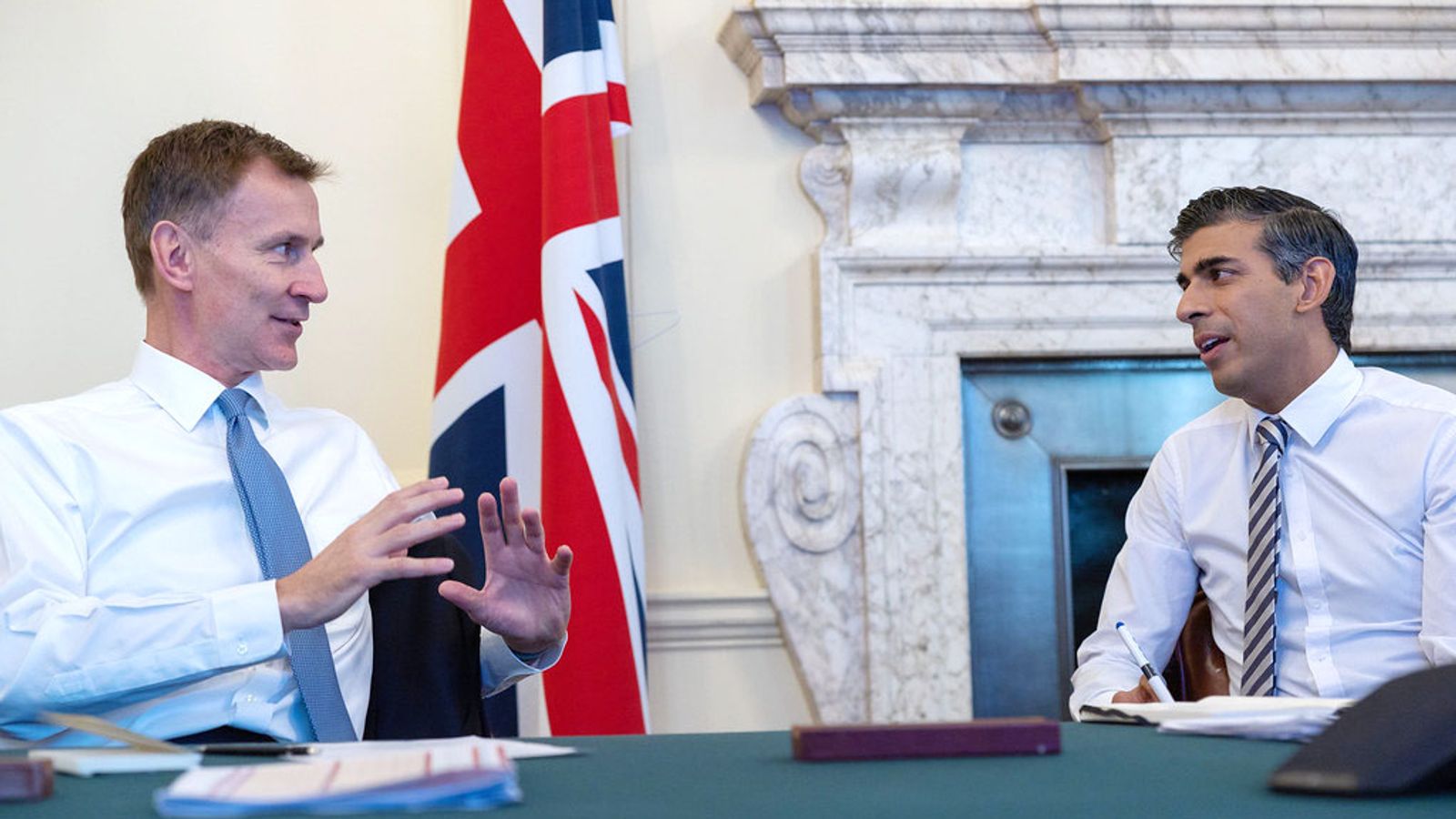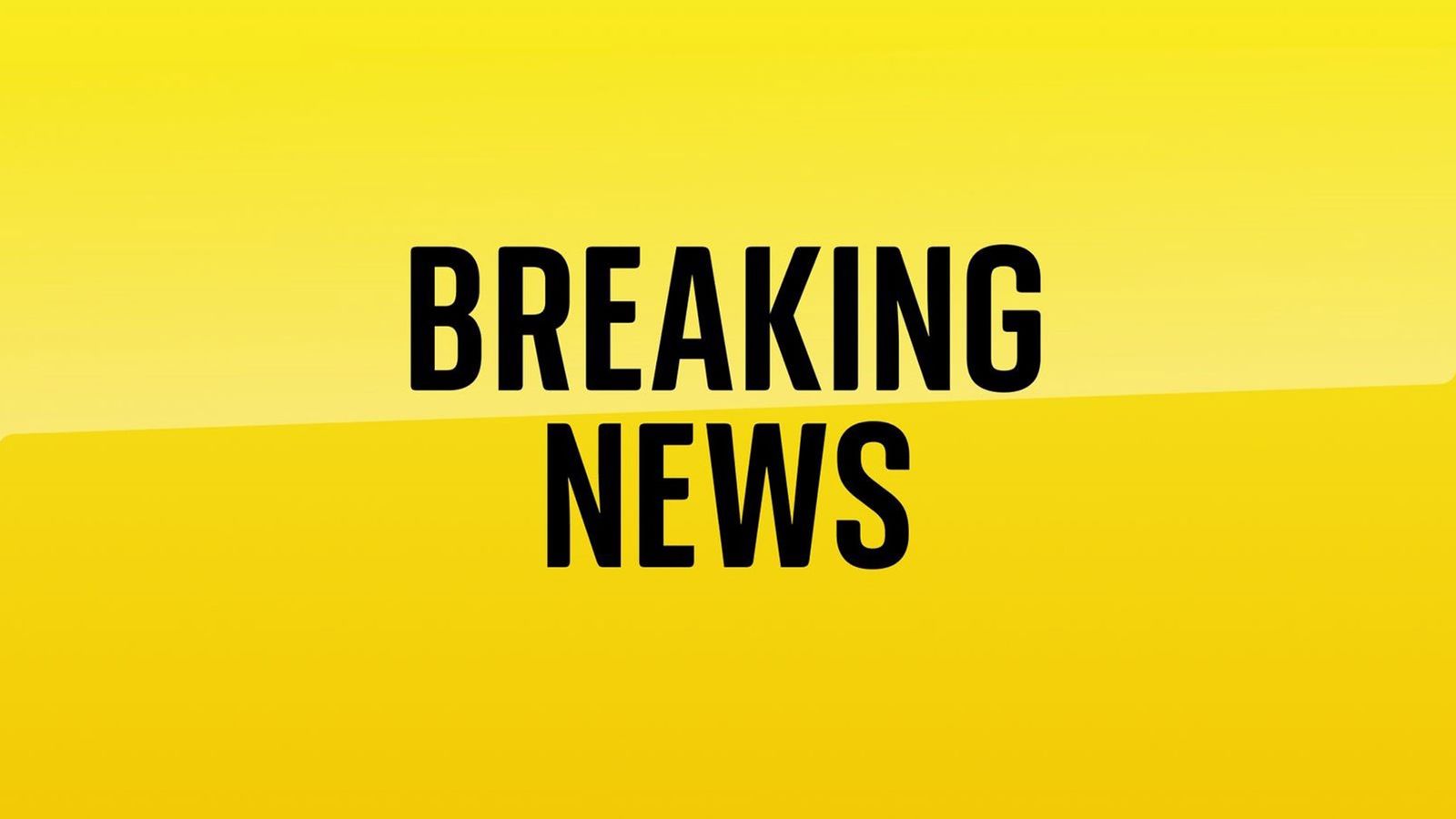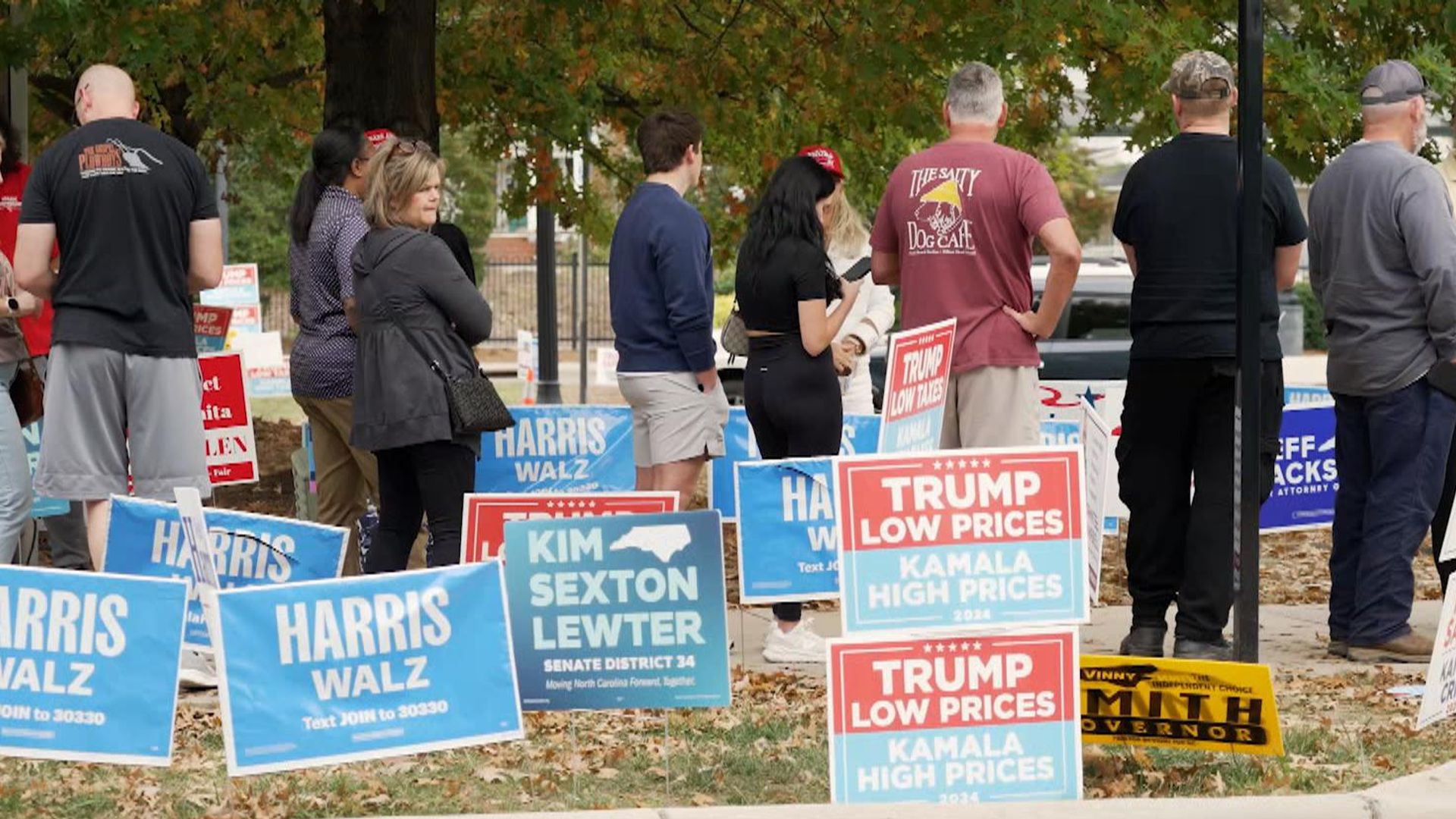The autumn statement this month will likely encompass “rough” tax rises as the Treasury seeks to fill a multi-billion “black hole” in the nation’s finances, Sky News has been told.
The warning from a source in the Treasury comes after Chancellor Jeremy Hunt and Prime Minister Rishi Sunak met yesterday morning.
They discussed what is being characterised as an eye-watering black hole, and agreed that tough decisions will be needed on tax rises as well as spending.
Politics live: COVID campaigners call for Matt Hancock to be kicked off reality TV show
The tax rises are likely to be across the board, although the pair agreed those with the “broadest shoulders” should bear the greatest burden, it is understood.
The source said: “It is going to be rough. The truth is that everybody will need to contribute more in tax if we are to maintain public services.
“After borrowing hundreds of billions of pounds through COVID-19 and implementing massive energy bills support, we won’t be able to fill the fiscal black hole through spending cuts alone.”
Tax rises ‘likely’ as government faces ‘unpalatable menu’ to fill £40bn black hole, leading thinktank warns
Cost of living: How can I plan my finances now?
Minister warns Truss cannot afford any more mistakes as PM fights to save job
The source did not put a figure on the “black hole”, but the Resolution Foundation thinktank have estimated at least £40bn will need to be found as part of the fall-out from Liz Truss’s disastrous mini-budget and warned tax rises are “likely” to come soon.
Mr Hunt will set out his plans in the Autumn Statement on 17 November and is reportedly considering splitting the burden equally between tax rises and spending cuts.
Please use Chrome browser for a more accessible video player
Few concrete details have emerged but, according to The Times, public sector workers could face deep real-terms cuts to wages, with The Treasury reportedly looking at an increase of 2% across the board for 2023-24, at a time when inflation is expected to be well above that threshold.
A Treasury source told the PA news agency that “no decisions have been taken” and the “independent pay review body process takes place next year”.
With BP unveiling profits that doubled to more than £7.1bn in the three months to September, pressure is continuing to mount for an enhanced windfall tax on oil and gas giants to help fill the Treasury coffers.
COP26 president Alok Sharma, who was demoted from the cabinet by Mr Sunak, has backed this move, saying: “We need to raise more money from a windfall tax on oil and gas companies and actively encourage them to invest in renewables.”
Rishi Sunak told his Cabinet on Tuesday that the NHS would be “prioritised” as difficult decisions are taken on spending, No 10 said.
A recession next year could be predicted by the government’s independent forecaster the Office for Budget Responsibility, the Resolution Foundation said, and GDP forecasts could be cut by up to 4% by the end of 2024.
Read More:
Liz Truss’s investment zones ‘under review’
Jeremy Hunt delays Halloween economic statement
Among the “menu” of options open to the chancellor are cuts to investment spending, a move the Resolution Foundation said could save £10bn but would also have a detrimental impact on growth.
The thinktank also suggests the government could try to choose the so-called “austerity option” – but this would require cuts to already-squeezed department budgets.
Meanwhile, £9bn could be saved by choosing not to raise benefits and pensions in line with rising prices next year, but any such move would have a “huge” impact on those already struggling to make ends meet.
Another option would be to re-instate the health and social care levy to raise £15bn by 2026-2027, while around £2bn could be raised by extending the “stealth” freezes in income tax threshold by a further year to 2026-2027.










